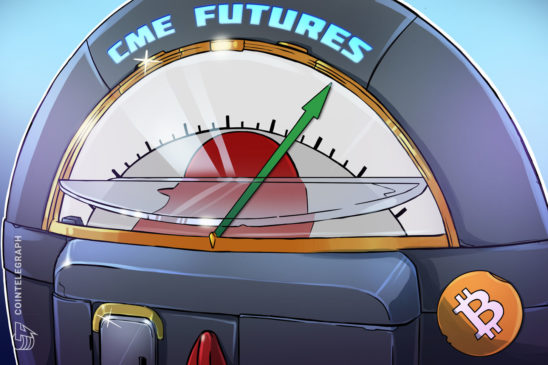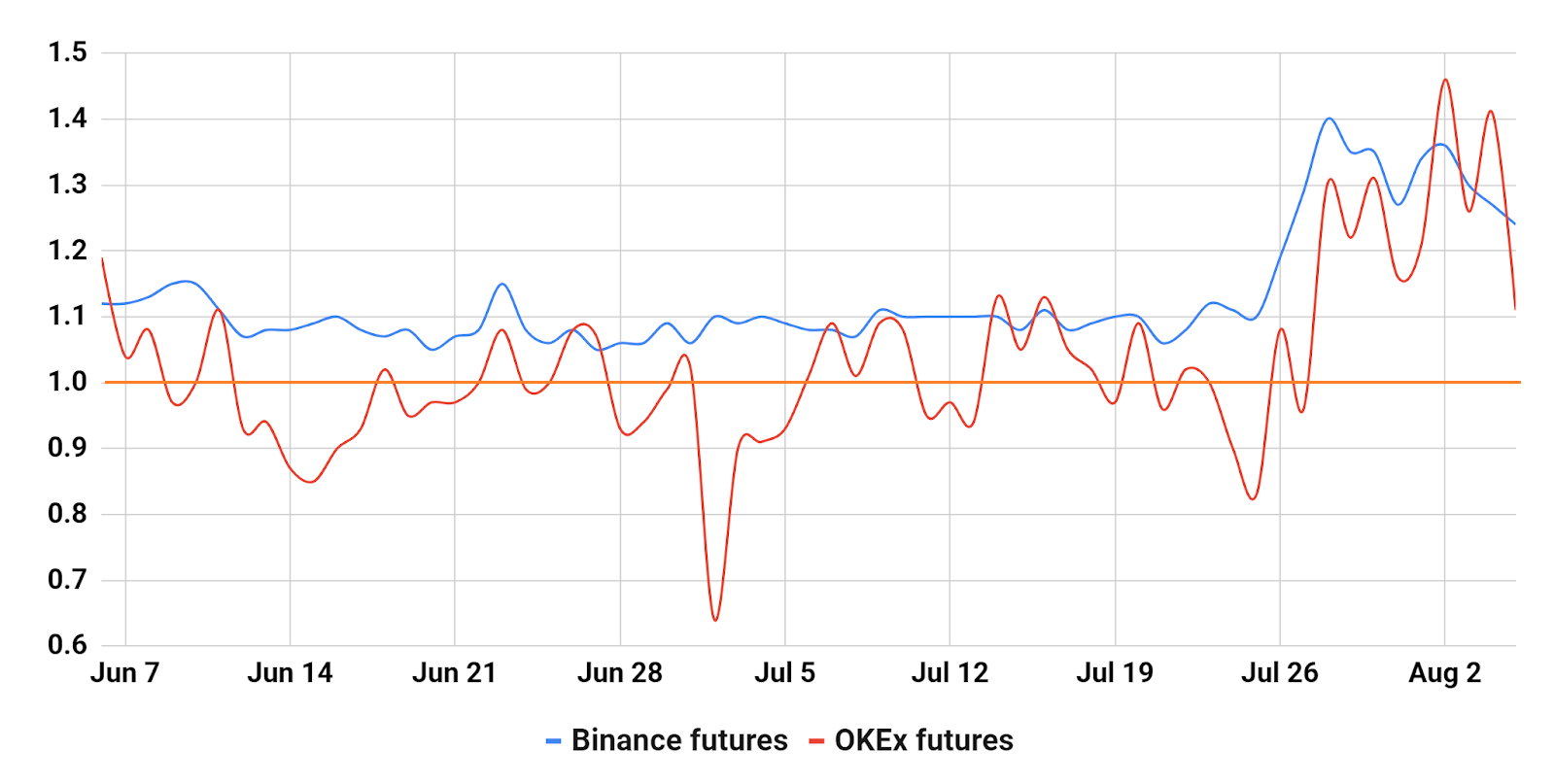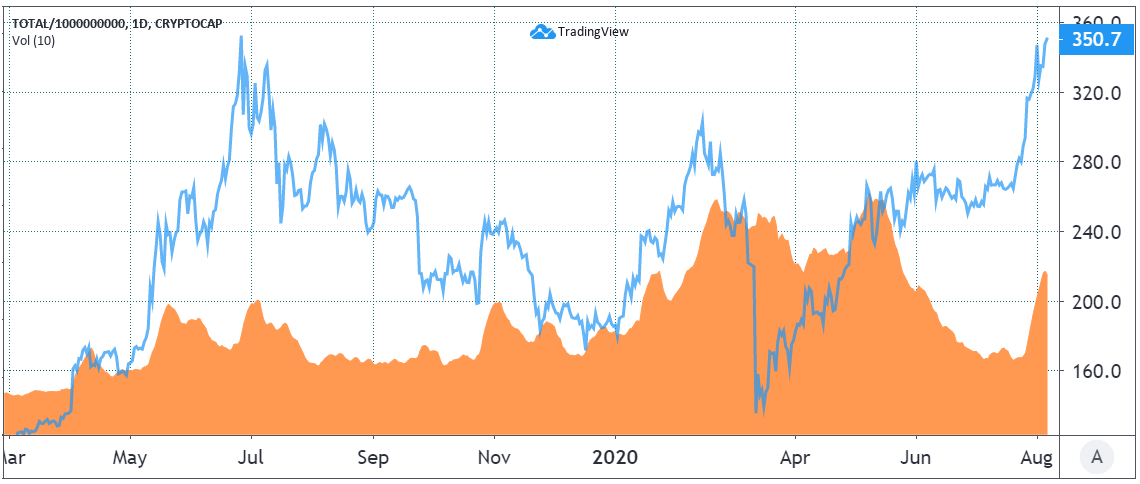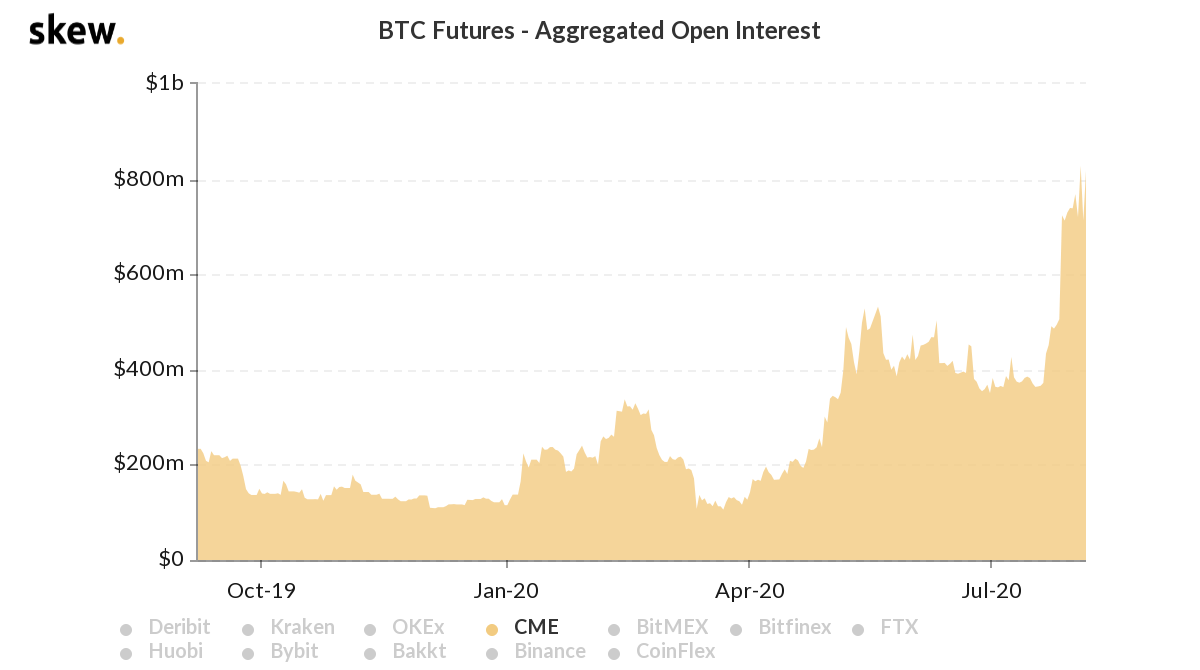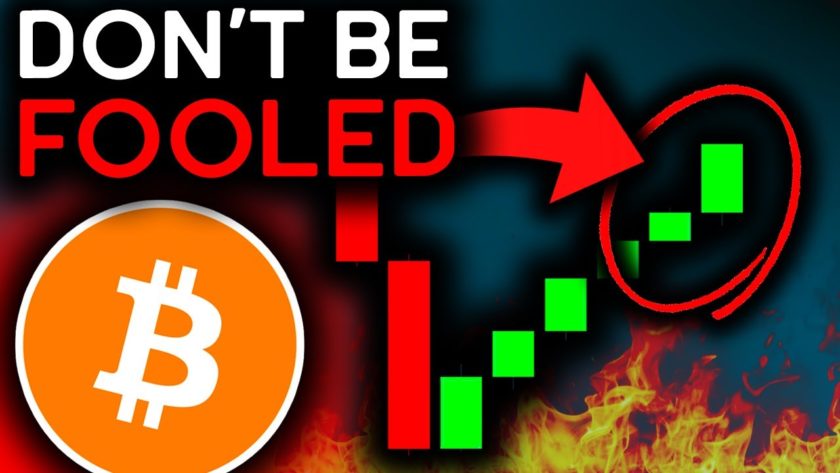Bitcoin (BTC) has been in a fairly strong bullish trend since mid-March when the price rebounded from the massive crash which saw the price drop as low at $3,600 on some exchanges.
Regardless of whether one is tracking the price on a 3-hour chart or the weekly timeframe, the price has steadily steamrolled higher, culminating with a test of $12,100 on August 2.
Technically, there hasn’t been a lower low ever since the 2-day 50% shakedown which saw the price testing the sub-$4,000 level.
Bitcoin USD 3-day chart. Source: Skew
Sometimes it’s hard to recognize such longer-term movements as the human mind gives more attention to recent or traumatizing events.
Some traders may have interpreted the agonizing 87 days that took to finally break the $10,000 resistance as a negative experience, deeming it a bear market.
Traders who’ve been focused on altcoins will celebrate the current ‘alt-season’ regardless of the total cryptocurrency markets’ performance and there’s also nothing wrong with that. The only potential drawback is that when top traders turn bearish, Bitcoin and Ether’s (ETH) trends reverse, causing exponential price decreases across altcoins.
Top traders reduced long positions but remain bullish
Looking at exchange-provided data highlighting traders’ long-to-short net positioning, one can determine whether professionals are leaning bullish or bearish.
Although there are discrepancies in methodologies, changes in this index provides a clear enough view of top traders net exposure.
Top traders longs/shorts. Source: Binance, OKEx, and Cointelegraph
Both Binance and OKEx data held a relatively neutral level until July 26, and since then, large traders have been carrying a net long exposure. Not even the sharp $1,500 Bitcoin price drop on August 2 was able to undermine these traders’ optimism.
Derivatives indicators from Bitcoin futures and options trading also remained strongly bullish despite $1 billion in liquidations on Sunday, according to Cointelegraph.
Volumes remain strong
After reaching peak price levels, volumes usually show a declining trend. This doesn’t necessarily translate to bearish sentiment, and often occurs in accumulation cycles.
Due to some exchanges inflated numbers, analyzing absolute numbers isn’t very helpful. Nevertheless, volume changes provide insight on increasing and diminishing activity, especially after strong price movements.
Bitcoin futures aggregate trading volumes. Source: Tradingview
Although it is yet to be seen if the recent total market capitalization will hold the $350 billion level, the recent uptick in the average volume is an indicator of a healthy market trend.
Even if this volume fades out, it shouldn’t be worrisome as long as it doesn’t move below the level of the previous month.
Institutional investors activity remains strong
Unlike volume data, futures contracts open interest provides a better picture of investors’ total risk exposure.
Regardless of its trading activity, which can momentarily cede after whiplash price movements, open interest will remain high as long as players keep their positions open.
To better assess institutional flow, Chicago Mercantile Exchange (CME) data should be analyzed in isolation.
CME Bitcoin futures open interest. Source: Skew
The rising open interest in CME futures indicates increasing institutional activity. As shown above, the indicator reached its historical high at $828 million on August 3, more than doubling from the previous month.
Derivatives confirm top traders bullishness
Derivatives indicators including contango (basis), funding rate, options 25% delta skew, and the put/call ratio are unambiguously signaling bullishness.
While there is no single indicator or analysis that provides certainty over short-term price movements, top traders’ net exposure and institutional investors’ growing appetite points to unquestionable bullish momentum.
When in doubt, traders should zoom out a little by using daily and 3-day charts, instead of focusing on smaller time frames and eventually getting run over by more extensive and aggressive trends.
The views and opinions expressed here are solely those of the author and do not necessarily reflect the views of Cointelegraph. Every investment and trading move involves risk. You should conduct your own research when making a decision.

